Ian Paterson: Breast surgeon 'played God' with women's bodies
- Published
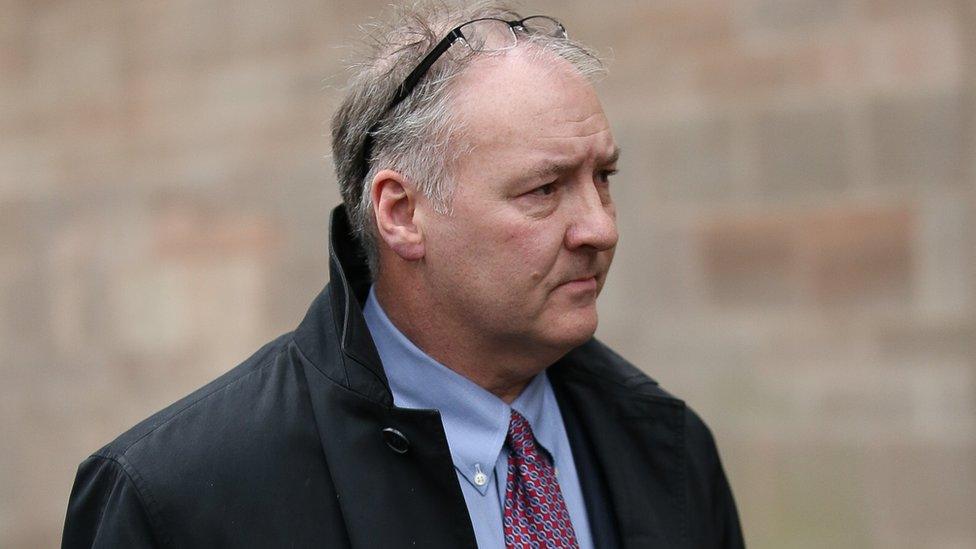
Ian Paterson was described as "charming" by his patients
Thousands of patients were introduced to breast surgeon Ian Paterson. The 59-year-old, who has been found guilty of wounding with intent, appeared trusting, kind and with their best interests at heart. But he left them disfigured and suffering years of mental and physical torment. Here, some of them share their stories.

'I've lost my home and my job because of him. Now I want to see him suffer.'
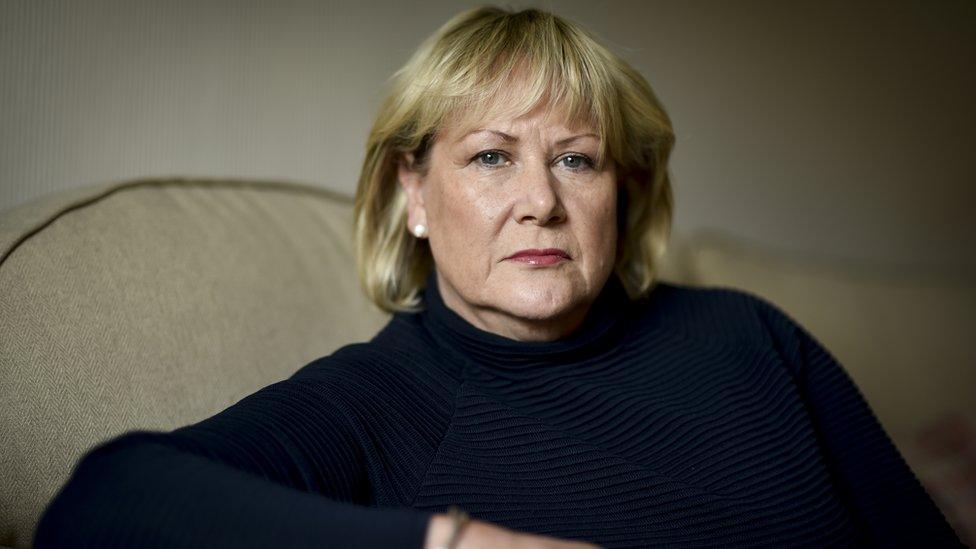
Frances Perks lost her mother and sister to breast cancer, so when a lump showed up on a mammogram when she was 35, she was referred to Paterson. During one consultation, he urged her to have a double mastectomy or risk "full-blown cancer".
She had her left breast removed and underwent eight other operations at the private Spire Parkway Hospital in Solihull, West Midlands.
However, she later learned that none had been necessary.
The effect on her life has been devastating.
"I was very worried. Because not only mum, but my older sister had died of breast cancer and she was only 40," said Mrs Perks, of Burntwood, Staffordshire.
Paterson told her she was "high risk" because of her family history.
"I had a mammogram once a year, and then an ultrasound every six months. When things did start to crop up, he'd say 'there's something sinister there, I don't like the look of it and because of your family history we need to careful. I think it should come out.'
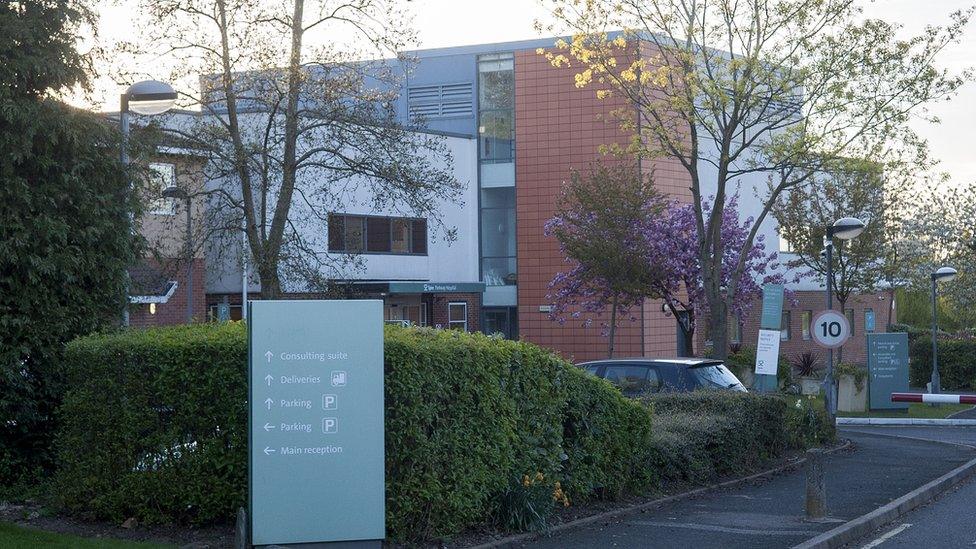
Mrs Perks underwent nine operations at Spire Parkway Hospital in Solihull
By 2008, she had undergone nine operations - the final being a left mastectomy. Paterson had told her, if it were him, he would have both breasts removed, but her insurers would not cover a preventative treatment.
"I had a fear that I could end up with breast cancer, which scared the living daylights out of me," she said.
"But when I was told I didn't need any of it, I was so shocked."
Mrs Perks' tissue was studied as part of a review of Paterson's work in 2012. The results showed the lumps had all been benign and the removal of her breast should never have happened. A genetic specialist later reassured her she had only ever been at moderate risk of developing cancer.
Paterson's actions did not only affect Mrs Perks physically. The stress of learning her operations were unnecessary caused her to leave her job at a firm of solicitors, and her financial hardship left her with no option but to sell her house.
"I feel hatred - pure hatred," she said. "I did not think I could hate someone as much as I hate him.
"I want to see him suffer because, OK, he might think he's suffered over the last few years but that's not good enough for me. Not for what he's put me through, what I've lost, and how it's affected me mentally and physically."


'He stuck a knife in me unnecessarily'
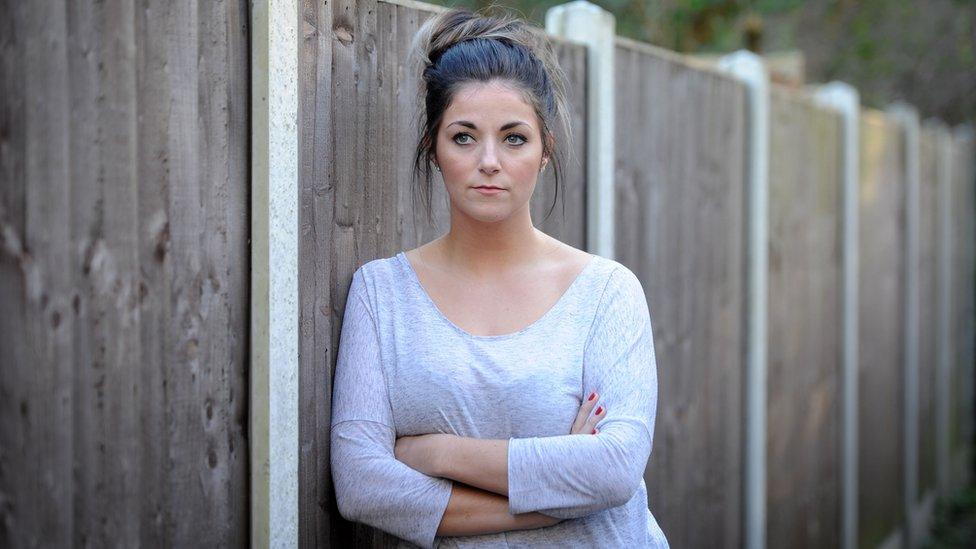
Jade Edgington was just 16 and studying for her A-levels when she found a lump in her breast while in the shower.
She was introduced to Paterson at the Spire Hospital and, by the time she was 19, had undergone four invasive operations. She later learned three procedures were unnecessary as the lumps were not even at risk of becoming cancerous.
"He told me we needed to get it out," she said. "He said it wasn't anything scary, but that it was big enough to get it out."
She went on to find three more lumps, and again Paterson said they should be removed. She and her family trusted his opinion.
"[We thought] he's the expert, he knows what he's doing. We went ahead with his advice."
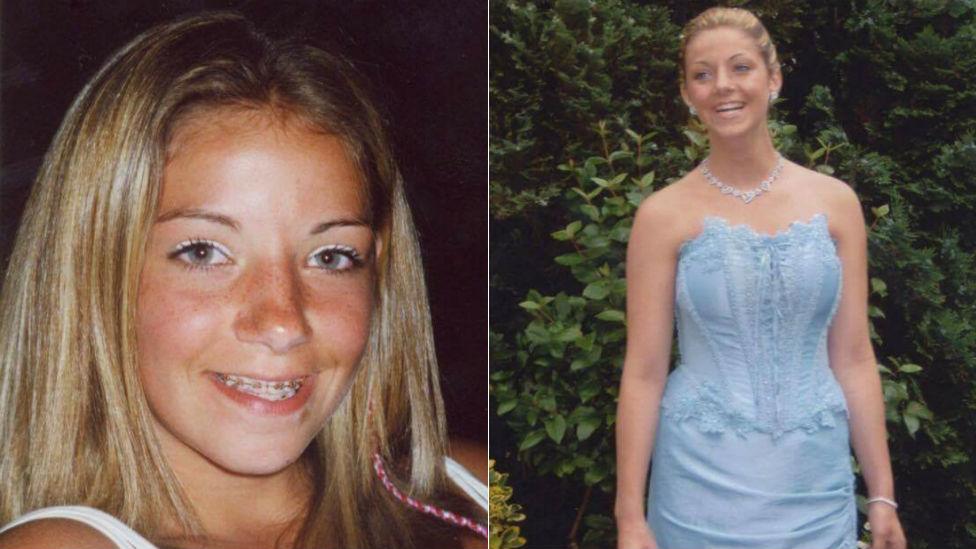
Jade's operations, which happened while she was studying for her A-levels, have left her scarred for life
Two years after her last operation she was recalled to be seen by another doctor who was reassessing Paterson's work.
"He came back and said they would have monitored the first lump for 12 months, and may not have taken it out, and the other three operations did not need to happen because I was so young.
"I was 16, I was growing and changing and they would have suggested I didn't have those operations," added Ms Edgington, who is now 28 and a bank worker.
"Why put us all through that? You feel almost violated - essentially, someone has stuck a knife in me unnecessarily.
"You can't believe a man of his calibre has put somebody through something like that unnecessarily."

'I'm fighting for justice in memory of my sister'
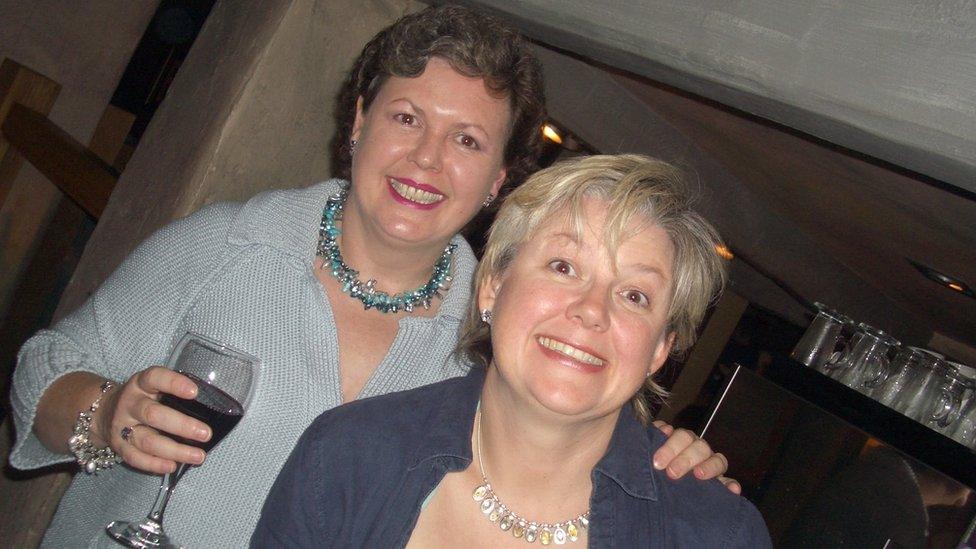
Marie Pinfield (left) and her sister Shirley Moroney were the best of friends
Police officer Marie Pinfield was diagnosed with advanced breast cancer in August 2006 and asked Paterson for a double mastectomy.
However, instead of waking up with the flat chest she expected, the surgeon - who pioneered the controversial "cleavage-sparing" surgical technique - had left so much tissue behind she had to wear a bra.
She asked for a second operation to correct the work. However, the subsequent delay to chemotherapy and radiotherapy meant she developed secondary cancer in her lung and died in October 2008.
Heart of England NHS Trust admitted the second operation would not have been necessary if the double mastectomy had been carried out properly. An independent report found Ms Pinfield could have lived for 10 more years had she received the right initial treatment.
Her sister, Shirley Moroney, remembers the first time they met Paterson.
"He was absolutely charming," she said. "He came across as a bit arrogant, but that almost gave you confidence that he would do a good job.
"At the point we had to make a complaint, that arrogance and charm was a difficult combination to work with.
"His attitude was 'how dare you question what I've done for you?'"
Ms Pinfield, a child protection officer with West Midlands Police, had made it clear to Paterson she wanted a double mastectomy.
"He was reluctant to agree to that," recalled her sister. "He said 'lots of people say that - they're in shock - and later on they look at their body shape and they wish they'd made another decision'."
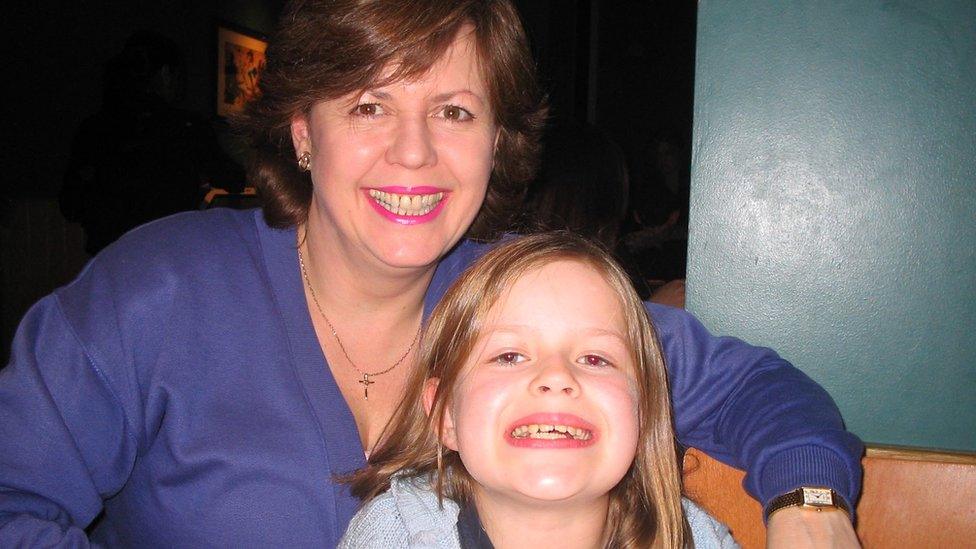
Marie and her niece Ciara
"I was shocked at how much material she still had on her body," said Mrs Moroney.
"I waited around to see him. I needed to ask him why she had so much left on her body. And his reaction to me was 'I knew you'd be trouble'.
"He said - I've taken all the mammary glands out. There's no breast tissue left. All that is left is fatty tissue."
Paterson finally agreed to a second procedure.
"On reflection, he should have said: 'Marie, let's do the chemotherapy, let's do the radiotherapy, and we'll sort your body issues out afterwards," said Mrs Moroney. "But he didn't.
"You need a month's recovery after the operation before you can start your chemotherapy and radiotherapy. That delay in her getting treatment is probably the reason the secondary cancer came back so quickly.
"The guy had a God complex. He felt that women could only be in this world if they'd got a breast body shape.
"Marie believed in justice, and right and wrong, doing the job she did. I know she will be looking down on me, willing me to go on."

'Why mutilate women so they no longer want their partners to look at them?'
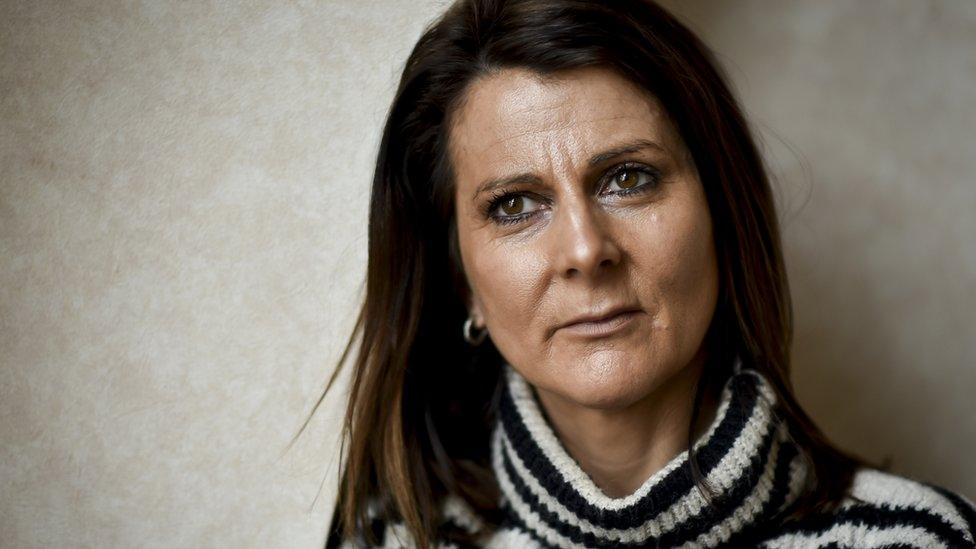
Cheryl Iommi first met Paterson in 2003 when she was having lumps removed from her right breast at Solihull Hospital.
He operated on her twice and told her she appeared to be developing cancer. She later learned the lumps he claimed were a cancer risk were simply scar tissue left behind from his botched procedures.
"When I first met him at Solihull Hospital, he came across as quite aggressive. He wasn't a very nice man on the National Health," she said.
He put her to sleep, and when she woke up, she discovered he had operated on both sides of her body without her consent.
"He said I'd had a lump in my left side as well," recalled Ms Iommi.
"Initially, I felt grateful that he'd got another lump out. But when I saw what he'd done, I thought: 'Oh my word'."
She had been left with a large "dent" in her side. To try and correct the damage, she went on to have reconstructive surgery but was never happy with the results. The surgery later ruptured.
Over the years, the mother of two continued to find lumps in her breast. In 2010, she decided to go to a private clinic and when she booked an appointment at Spire hospital in Solihull, met Paterson again.
"He was a completely different person this time. As nice as pie.
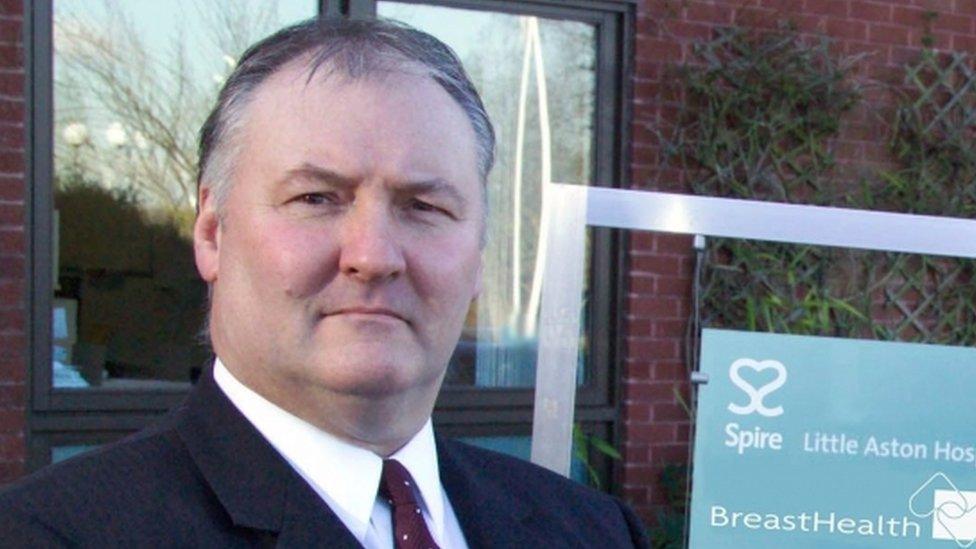
Ian Paterson was charming and confident - but he betrayed his patients' trust
"He said he could take the lumps out in a week, so he did. When I had my check-up he told me 'we're so lucky we caught it when we did'."
Shortly after, Ms Iommi, from Birmingham, was told her surgery needed to be reviewed. She has since seen many medical professionals who have told her the lumps in her breasts are simply scar tissue.
Her experience has left her traumatised.
"He's an educated man," she said. "I believed him. I'm still scared now.
"I'm forever at the doctors. I have a lump in my throat due to anxiety. I feel like I've been duped - seriously misled.
"I think he did it for power - and a lack of respect for women. Why mutilate women so they no longer want their partners to look at them?"

'My surgery and chemo cost over £100,000 - and I never needed it'
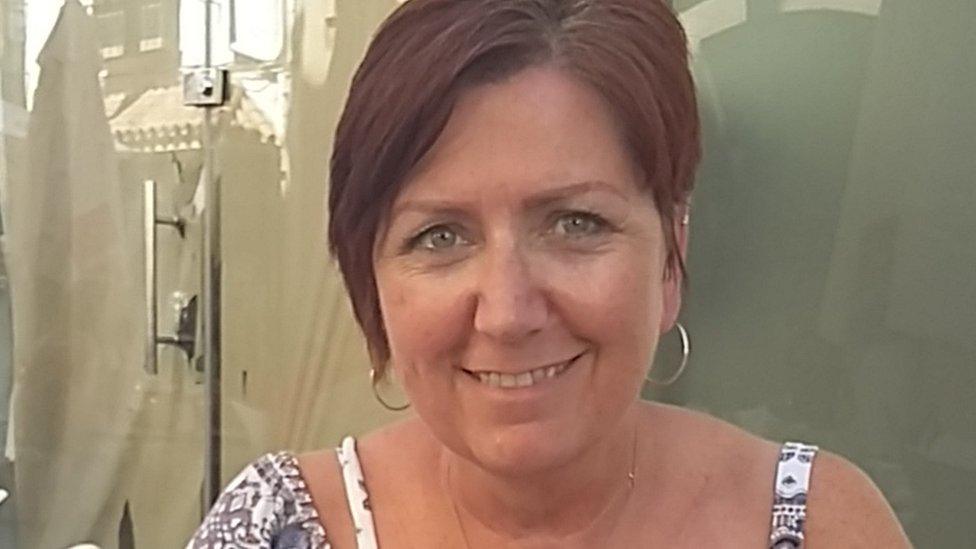
Debbie Douglas says she copes with the trauma of having unnecessary surgery by always being 'on the go'
In the space of three years, mother-of-three Debbie Douglas lost both her parents to cancer and was diagnosed with breast cancer herself.
Paterson performed a cleavage-sparing mastectomy which left her in "horrendous" pain. She later learned her cancer was not serious enough to warrant a mastectomy or the exhausting, seven-month course of chemotherapy she endured.
"He never bothered telling me any of that - he just took my breast off," said Mrs Douglas, 58, of Birmingham.
Paterson recommended immediate reconstructive surgery, which involved taking part of the stomach muscle and using it to shape the new breast.
"I was cut from hip to hip and had all my lymph nodes removed. Afterwards I had no core strength - even now, I struggle to lift my granddaughter. I also got a hernia, which is a common side effect.
"I was grieving for my parents, and I was in horrendous pain for a long time."
Paterson never told her he was giving her one of his signature cleavage-sparing ops. It was only when she was recalled and reviewed, she learnt he had not taken away all the breast tissue.
"I always knew my scar looked different to what it should have done. I don't know why he gave it to me - he didn't explain anything to me about it at all."
She estimates the cost of all her surgery exceeded £100,000.
"He was the best surgeon - the top notch consultant. If he'd have told me to stand on one leg to get rid of my cancer, I'd have done it.
"He used to say: 'You can be cured.' He used to say that a lot.
"He's left me with a real fear my cancer will return. I am still paying to get checked out, because I don't want to get cancer."

'When you go private, you think you've got the best'
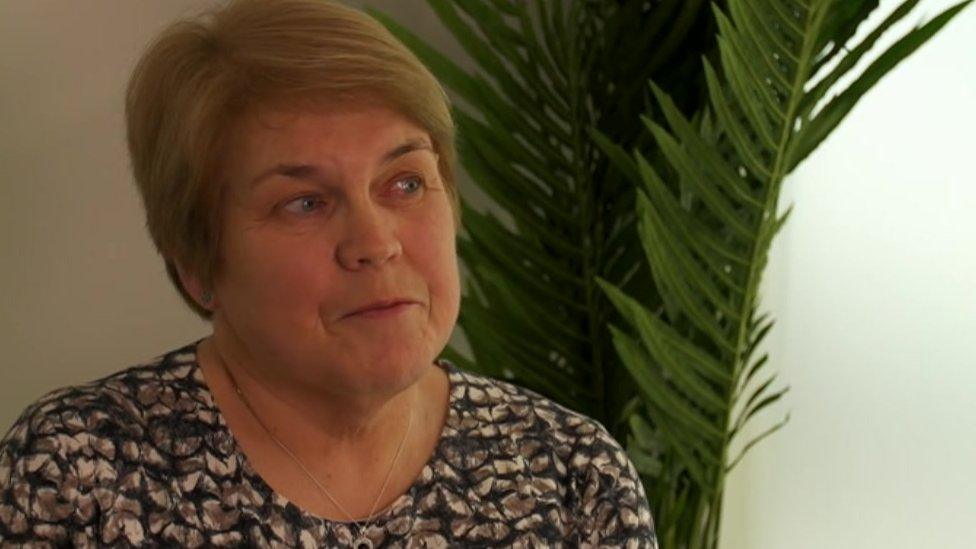
Patricia Welch was one of 10 patients who gave evidence in Paterson's trial at Nottingham Crown Court
Paterson had told Patricia Welch he had found a "ticking bomb" of cancerous cells in her breast - she was so scared of the consequences she opted for a mastectomy and immediate reconstruction.
But when her case was reviewed as Paterson's work was called into question, an expert found her symptoms had been grossly exaggerated.
His trial at Nottingham Crown Court heard Paterson embellished the cancer risk to both Mrs Welch and her doctor, and her mastectomy was unnecessary.
"I don't know whether he liked to play God or whether he liked to see the women he saw be grateful for what he'd done and whether he got a kick out of it," she said.
"He was just sitting there in open court on a laptop as if he hadn't got a care in the world.
"Hate is a strong word. I've never hated anyone in my life before, but it's pretty close.
"He won't suffer as all of us have been made to suffer all these years.
"I don't think you can ever get over it, because you've got it looking back at you in the mirror every morning.
"What he did. It will never go away. When you go private, you think you've got the best."
